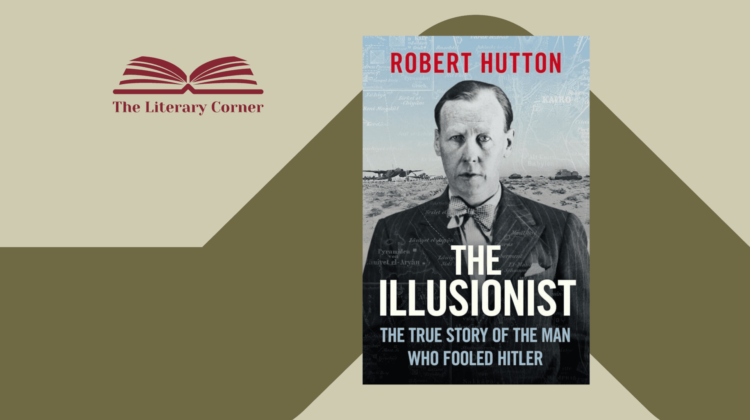
The Illusionist: The True Story of the Man Who Fooled Hitler
Title: The Illusionist: The True Story of the Man Who Fooled Hitler
Author: Robert Hutton
Pages: 384
In “The Illusionist: The True Story of the Man Who Fooled Hitler,” Robert Hutton presents an enthralling account of one of World War II’s most enigmatic figures, Colonel Dudley Clarke. Set against the backdrop of Cairo in 1942, this biography unravels the intricate web of deception that Clarke spun to mislead the Axis powers, particularly Erwin Rommel, Hitler’s most formidable general. Hutton’s meticulous research and engaging narrative style bring to life the story of a man who used cunning and creativity to shape the course of history.
Hutton begins by painting a vivid picture of wartime Cairo, a city teeming with intrigue and espionage. Clarke, a larger-than-life character known for his fondness for a good drink and a tall tale, emerges as a master illusionist whose true work was shrouded in secrecy. The author deftly captures the essence of Clarke’s personality, portraying him as a blend of James Bond and P.T. Barnum, a man whose charm and wit were as crucial to his operations as his strategic acumen.
The heart of the book lies in Clarke’s ingenious use of psychological warfare. Clarke’s A Force, a unit dedicated to deception, utilised a combination of rumours, staged events, and theatrical flair to sow confusion among the Axis ranks. Hutton details the lengths to which Clarke and his team went to create illusions, from fake military units to misleading radio broadcasts. These tactics culminated in the legendary deception operations leading up to the Battle of El Alamein, a pivotal moment in the North African campaign.
Hutton’s account is enriched by recently released documents that shed new light on Clarke’s activities. The narrative is peppered with anecdotes and details that highlight the audacity and creativity of Clarke’s schemes. One particularly gripping section describes how Clarke orchestrated the creation of a phantom army, complete with dummy tanks and aircraft, to convince Rommel that the British forces were stronger than they actually were. This operation played a significant role in the eventual Allied victory at El Alamein.
“The Illusionist” is not just a tale of wartime derring-do; it also delves into the broader implications of Clarke’s work. Hutton explores how Clarke’s methods influenced the development of modern psychological warfare and special operations. The book also touches on the ethical dimensions of deception in warfare, raising thought-provoking questions about the fine line between trickery and truth.
Hutton’s writing is both authoritative and accessible, making complex military strategies understandable to the lay reader without sacrificing depth. His background as a journalist and historian shines through in the clarity and coherence of the narrative. He skillfully weaves together personal anecdotes, historical context, and analytical insights, creating a compelling portrait of Clarke and his world.
However, the book does have its limitations. While Hutton excels in bringing Clarke’s exploits to life, some readers may find themselves wanting more insight into Clarke’s personal motivations and inner life. The man behind the mask remains somewhat elusive, his deeper thoughts and feelings obscured by the very deceptions he masterminded. Additionally, the book’s focus on Clarke’s wartime achievements means that his post-war life and legacy are given relatively short shrift.
Despite these minor shortcomings, “The Illusionist” is a captivating read that shines a spotlight on a fascinating but little-known aspect of World War II history. Hutton’s ability to convey the excitement and suspense of Clarke’s operations makes this book a must-read for history enthusiasts and fans of espionage alike. It is a testament to the power of imagination and ingenuity in the face of adversity, and a reminder that sometimes, the most effective weapons are not guns or bombs, but stories and illusions.
In conclusion, “The Illusionist: The True Story of the Man Who Fooled Hitler” is a masterfully crafted biography that does justice to the remarkable achievements of Colonel Dudley Clarke. Through meticulous research and engaging storytelling, Robert Hutton brings to life the exploits of a man whose creativity and daring changed the course of the war. This book is a valuable addition to the literature on World War II and a fitting tribute to one of its most colourful and intriguing figures.
Author: The Editorial Team
